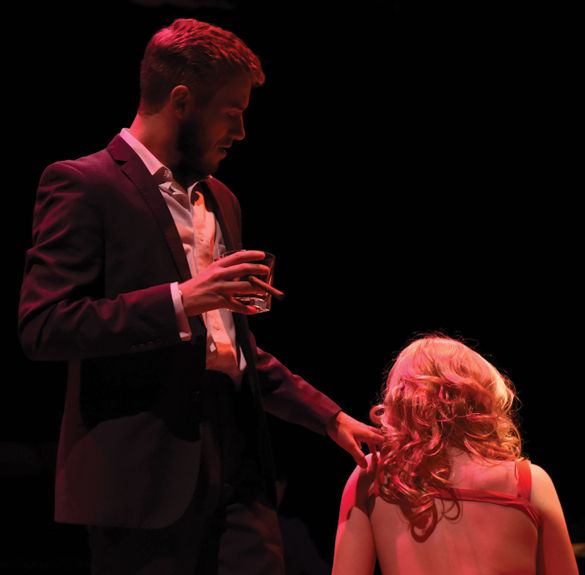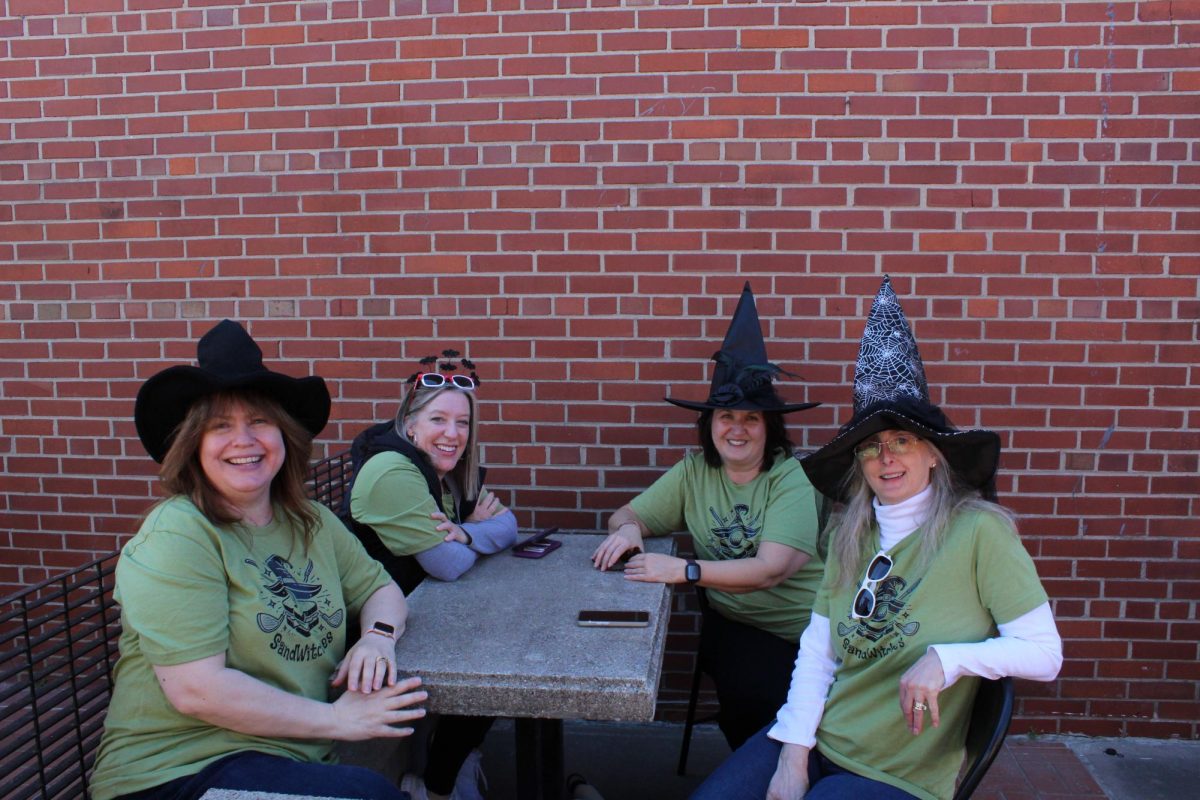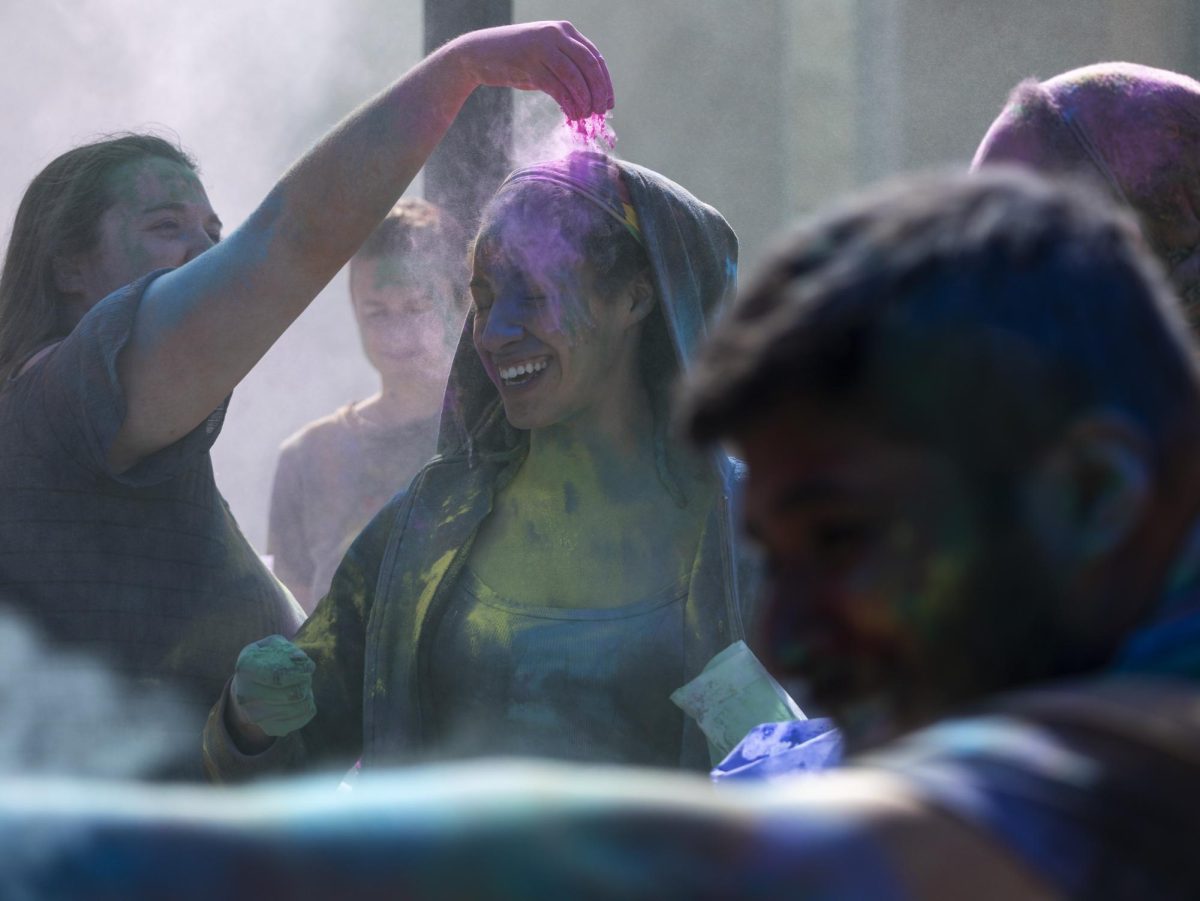“Wife/Worker/Whore” centers around relevant issues

March 29, 2016
Connections and comparisons help “Wife/Worker/Whore” tackle sexism, sex and sexualization.
From Thursday to Sunday, the SIU Department of Theater will present the Fourth Annual Big Muddy New Play Festival. This event showcases the work of the college’s playwrights and includes one full-length production.
“Wife/Worker/Whore,” written by Kirsten Easton and directed by Segun Ojewuyi, is this year’s featured play. It is a story of a housewife, a police officer and a call-girl pushed to use their sexuality to advance in each’s respective field.
Advertisement
Easton, a master’s student in playwriting from Los Angeles, said the writing process began in May, when she had to propose the idea for her thesis project.
She started writing the first draft during her summer break and developed the play from there.
“That always is the longest part,” she said. “It involves outlining, and figuring out what the heck you want to say and who your characters are.”
Easton said the plot is based on Norma Jean Almodovar, an author and sex worker activist. She went from being a Los Angeles police officer to a call girl.
In her book, Almodovar talks about how she viewed herself as a prostitute while working at the LAPD, Easton said. There were times where she would have to use her sexuality just to gain advantage.
Her story told of women’s choices and lack of choices, along with the power dynamic between men and women, Easton said. These are also major themes of “Wife/Worker/Whore.”
They are problems many women face every day, she said.
Advertisement*
“The sort of power dynamics and sexuality in the play between men and women, I think most women can experience,” Easton said. “It speaks to a lot of women.”
Katelin Coursey, a senior studying musical theater from Henderson, Kan., agrees, saying sex and sexuality are also huge thematic points.
“Sex is a sensitive topic,” she said. “People don’t really want to talk about it.”
Coursey said the three main characters have this power to use sex to get what they want, but there is also a struggle once a character gains the goal, she said.
On one hand, a woman can feel empowered from this experience, Coursey said. On the other, she can feel dehumanized.
Coursey plays the character “Baby,” which is the wife role. She is a character motivated by one of the biggest stereotypes placed on women, Coursey said.
Baby is taught the old typecast of what a wife should be. A housewife should take care of household errands and the husband should be working. There is a dynamic happening there keeping women down, she said.
Jacob Juntunen, the head of the playwriting program, said the festival gives playwrights like Easton an opportunity to try out everything they have learned.
The playwrights do not have to be from the theater department, he said. This year a student from the communications studies and health education departments are participating.
The full production in general, which is always included with the event, helps students understand how a script goes through its different forms, Juntunen said.
“Giving [master of fine arts] playwriting students this capstone project allows them to take all the training of their three years into a research arena in which they can demonstrate their ability and experience the role of a professional playwright outside an educational system,” he said.
Easton has been interested in gender roles she arrived at SIU, Juntunen said. This is her third full-length play she has written for the playwriting program. It is a topic that is relevant today with problems of gender pay gap constantly coming up, he said.
Juntunen said there are a lot of moving parts to the play and it has a mystery element to it. The three women of the play are all connected and the audience is given clues along the way of how they come together.
“I think that the connection between the three women will be surprising and revelatory, and that’s what people will talk, and even argue, about,” he said.
“Wife/Worker/Whore” will show at 7:30 p.m. Friday through Saturday and 2 p.m. Sunday in C.H. Moe Theater and the stage readings will take place in the McLeod Theater.
Tickets are $18 for adults and $6 for students.
Jacob Pierce can be reached at jpierce@dailyegyptian.com or 618-536-3325.
Advertisement








